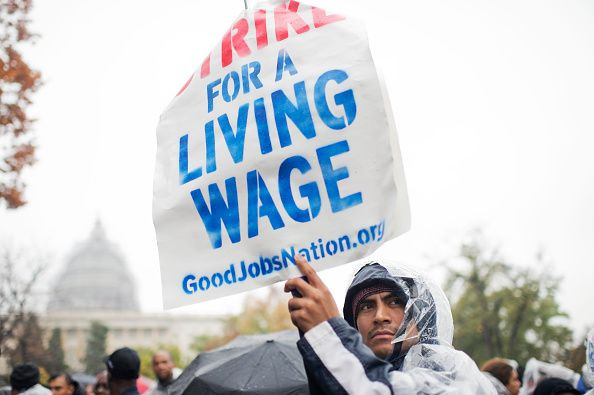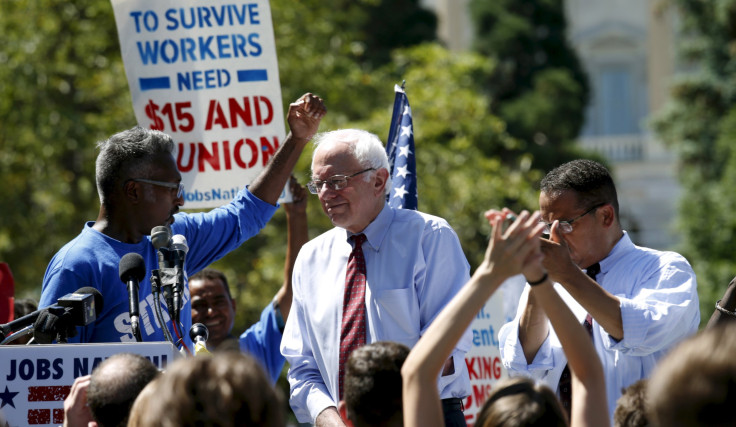Minimum Wages To Increase In 14 States By New Year's Day

Some of the country’s lowest-paid workers are about to get a raise. Fourteen states, including New York and California, will lift their minimum wages on either New Year’s Eve or New Year’s Day.
The hikes will come as most American workers continue to suffer from broad-based pay stagnation, even as the official unemployment rate falls. The pay raises also underline the growing gap between statewide wage floors and the federal hourly minimum, which remains $7.25.
Twenty-nine states and the District of Columbia — have minimum wages higher than the federal pay floor, according to the National Conference of State Legislatures.
In addition to the wave of New Year’s pay hikes, Nevada, Minnesota and Maryland are slated to hike their minimum wages later in 2016. A number of cities are poised to follow suit during the year, including Seattle, San Francisco and Los Angeles, which are all phasing in $15 minimum hourly wages. Those three cities' wage hikes — the most ambitious and controversial of the bunch — are largely the product of the so-called Fight for 15, a union-backed protest movement.
Christine Owens, executive director of the National Employment Law Project, a research and advocacy group, applauded the series of pay increases. But she said the hikes are unlikely to dramatically affect most workers’ paychecks.
“The increases in 2016, particularly those that aim for $15 within a reasonable period, are a good start but they will not immediately halt broad-based wage stagnation,” said Owens. “That’s because wages have been stagnant or fallen across the board for most workers — particularly for workers whose wages are lowest — for many years, and it will take a while for these patterns to reverse.”
Dan Crawford, a spokesman for the Economic Policy Institute, a left-leaning think tank, said policymakers should consider other options to “jump-start wage growth across the board” like lifting the federal minimum wage and strengthening collective bargaining rights.
Democrats in Congress have proposed raising the federal minimum to $12 and $15 an hour, but the bills have stalled under Republican majorities in both chambers.

Walmart, the country’s largest private sector employer, lifted starting pay to $9 an hour earlier this year. In 2016, it plans to further boost its lowest wages to $10.
Still, many business groups groups have opposed efforts to lift minimum wages. The U.S. Chamber of Commerce focuses on federal policy, not state policy, but it warned of the impact of minimum-pay increases on employers.
“Any discussion about raising the minimum wage needs to recognize that small employers often have to operate under very slim profit margins and will have the hardest time absorbing these higher labor costs,” said Randy Johnson, senior vice president at the Chamber of Commerce. “They will have to find more revenues or trim costs to make up the difference.”
According to the Bureau of Labor Statistics, roughly 3 million workers earned the federal minimum wage or less last year. The federal minimum for employees who receive tips is $2.13 an hour.
© Copyright IBTimes 2024. All rights reserved.






















